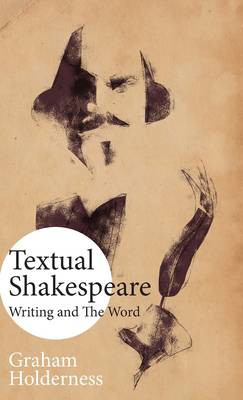
- Retrait gratuit dans votre magasin Club
- 7.000.000 titres dans notre catalogue
- Payer en toute sécurité
- Toujours un magasin près de chez vous
- Retrait gratuit dans votre magasin Club
- 7.000.000 titres dans notre catalogue
- Payer en toute sécurité
- Toujours un magasin près de chez vous
145,45 €
+ 290 points
Format
Description
In this expanded and much revised new edition Professor Holderness reassesses the Bard as a writer in the light of the most recent "revolution" in bibliography and textual studies. This has shifted much opinion about the playwright, how he worked, and with whom he collaborated. Yet there remain many unsolved riddles. / This is a book about unresolved (and unresolvable?) questions about Shakespeare, and about writing, creativity and its study. / Professor Holderness reviews the current debates in textual theory and practice. He concludes that "Shakespeare" is not a writer but a collection of documents, none of which can with any certainty be linked to whatever it was the author wanted to say. He goes beyond both traditional and "materialist" bibliography to show that texts are both physical media, made and remade by a series of craftspeople; and rich repositories of changeable meaning. / According to modern literary studies all texts are copies, always already changed, and there are no "originals". Editors are translators; and scholars and critics rewrite the writing they study. The book advocates a recovery of ancient concepts such as creativity and imagination, together with a recognition of the technical and essentially collaborative nature of all writing. Shakespeare is then situated within this theoretical context, via a brief history of the plays' textual reproduction. / A series of chapters on individual plays provides illustrative examples of such textual activities in practice. The book concludes that all Shakespeare scholarship, editing and criticism are devoted to a quest for something missing: not the lost manuscript (which even if recovered would not in any case answer all our questions), but rather the absence that writing always invokes. / Contents: New Introduction to revised edition. / Chapter One: Text. / Chapter Two: Matter. / Chapter Three: Originals. / Chapter Four: Texts and Contexts: King Lear. / Chapter Five: Visions and Revisions: Hamlet. / Chapter Six: Notes and Queries: Macbeth. / Chapter Seven: Now you see me, now you don't: Hamlet. / Chapter Eight: Writing and Fighting: Henry V. Conclusion: Writing in the Dust. / Notes and Bibliography. / Index.
Spécifications
Parties prenantes
- Auteur(s) :
- Editeur:
Contenu
- Nombre de pages :
- 180
- Langue:
- Anglais
Caractéristiques
- EAN:
- 9781913087050
- Date de parution :
- 03-06-21
- Format:
- Livre relié
- Format numérique:
- Genaaid
- Dimensions :
- 140 mm x 216 mm
- Poids :
- 421 g







